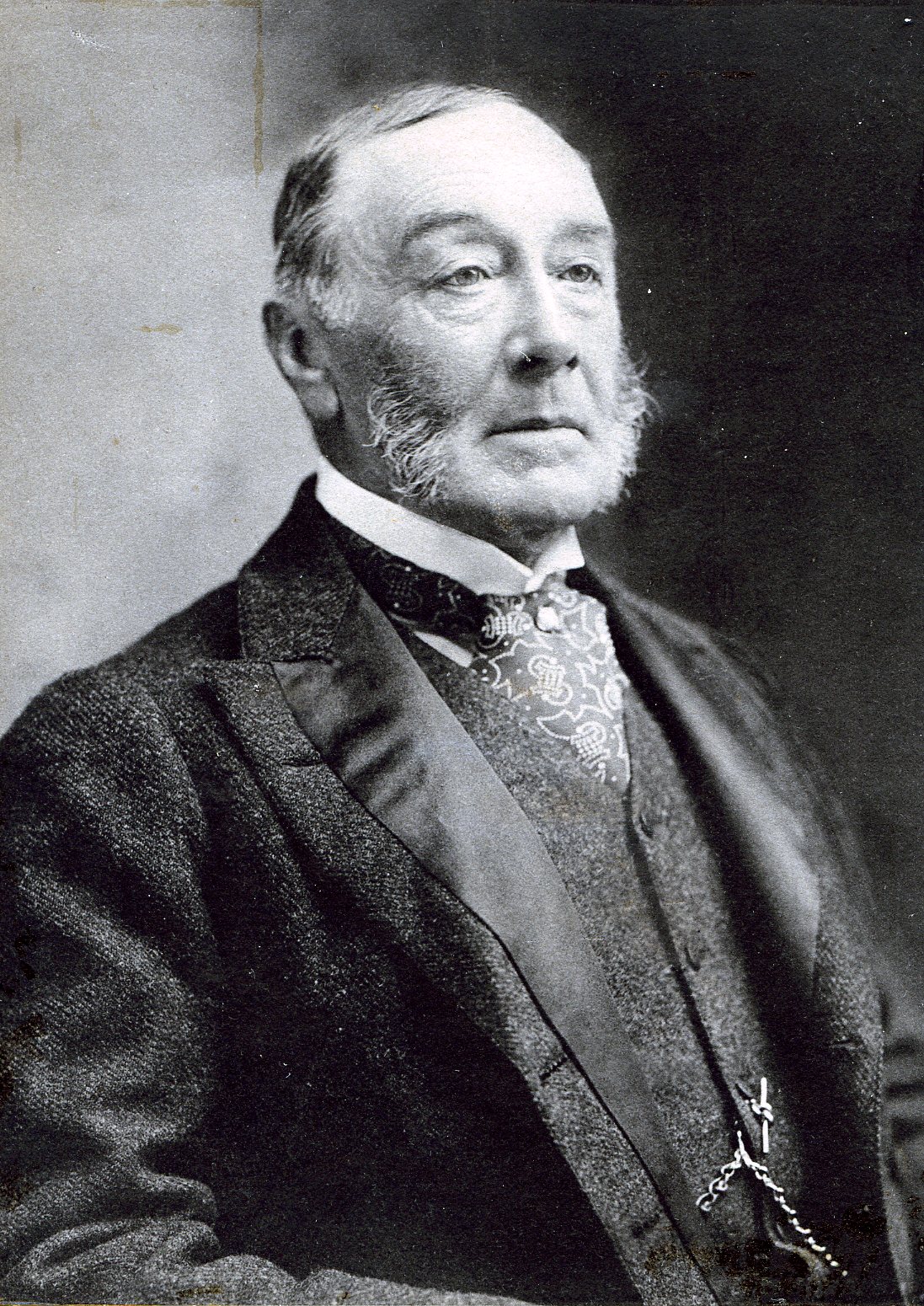Industrialist/Philanthropist
Centurion, 1899–1900
Born 16 July 1828 in New York (Manhattan), New York
Died 8 December 1900 in New York (Manhattan), New York
Buried Saint James Episcopal Churchyard , Hyde Park, New York
, Hyde Park, New York
Proposed by Alfred Pell and Henry E. Howland
Elected 3 June 1899 at age seventy
Archivist’s Note: Father of James R. Roosevelt and Franklin D. Roosevelt; brother-in-law of Frederic A. Delano; nephew of William H. Aspinwall
Century Memorial
James Roosevelt, the head of one of our oldest families, was a descendant of Isaac Roosevelt, one of the first senators from this State. He was graduated at Union College in 1847; studied and travelled in Europe for two years; subsequently graduated at the Harvard Law School, and entered the office of Benjamin D. Sullivan, now the oldest living member of the New York bar. He was called from his profession into the management of important corporations[,] a service for which he was especially qualified, and was a member of the directory of the Consolidation Coal Co., of Maryland, of the Cumberland and Pennsylvania Railroad Co., and many other Southern and Western roads. He was president of the Louisville, New Albany & Chicago R. R. Co., and of the Champlain Transportation Co., Vice-President of the Delaware & Hudson Canal Co., a trustee of the Farmers Loan & Trust Co., and of the City Trust Co., and various other organizations. He was a manager of the Hudson River State Hospital, and a member of the Board of State Charities and many charitable institutions in various parts of the State. He had always lived in the country at Hyde Park, was much interested in all the local affairs of the town, and gave much attention to the school and church.
This record attests his active usefulness as a business man, a philanthropic and public-spirited citizen, but in addition to this every one who knew him would bear witness to his high character, distinguished for its nobility and honor, to his geniality and kindness, and to the charm of his manner. He was the very ideal of a gentleman of the old school.
Henry E. Howland
1901 Century Association Yearbook

